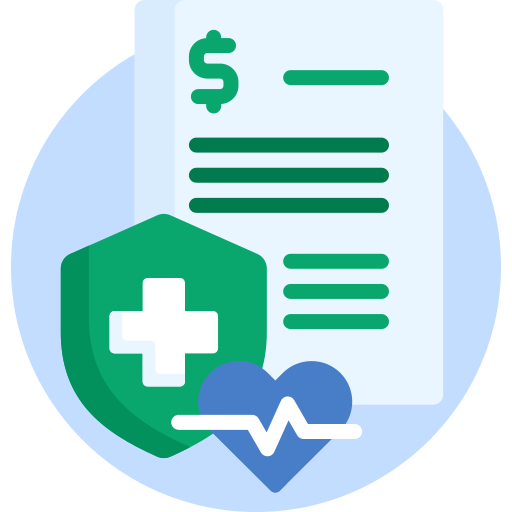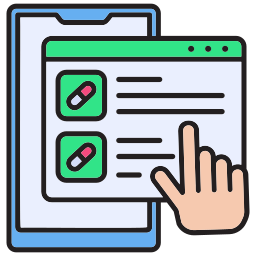If you're immersed in the challenges of health tech innovation—scaling AI-native platforms, integrating with complex EHR systems, and striving to accelerate progress beyond the limitations of your current vendors—then this story will resonate deeply with you.
It began with a conversation that mirrored the frustrations of many digital health leaders: sluggish timelines, inconsistent engineering teams, and a complete lack of clear integration roadmaps. Meanwhile, high-stakes deals and key partnerships were teetering on the edge of collapse, all because progress was hindered at every turn.
Does this sound familiar? Let's break down what's slowing down your teams—and how the right partner can help you overcome these obstacles.
The Hidden Cost of Vendor Dependency
As health tech startups scale, especially when integrating with enterprise health systems, many opt for third-party integration platforms like Redox or partner vendors that promise “plug-and-play” solutions. On the surface, these vendors seem like the ideal choice: they claim expertise in EHR integration, offer initial connections, and promise long-term partnerships.
However, the truth is, they often fail to meet expectations.
Take, for instance, a recent conversation with a digital health company facing exactly this situation. Initially, they were confident in their vendor’s ability to manage integrations. The vendor was experienced, and the early connections worked as promised. But as the company tried to scale, speed became a major bottleneck.
Integrations were added sequentially rather than in parallel, engineers rotated out midway through projects, pricing was inconsistent, and the promised self-service tools left the team more dependent on the vendor than ever. Ultimately, while the company had contracts across multiple Epic-based sites, they couldn't move forward with a much-needed showroom listing because their integrations had stalled.
The frustration was palpable: a care navigation and AI platform was being held back by backend inefficiencies. Vendors had become a roadblock instead of a support system.
Build It. Own It. Scale It.
This is where Mindbowser makes a difference. We offer a radically different approach—one that focuses on helping you build and own your own intellectual property (IP), rather than depending on third-party vendors.
We’re not just about integrations. We help you design your system from the ground up, using FHIR-native interoperability, a scalable data architecture, and AI-readiness at every step of the process.
Here’s what we bring to the table:
- Seamless EHR integrations with Epic EHR, Cerner EHR by Oracle, Athenahealth EHR
- Sandbox environments and solution accelerators are available from day one
- Built-in HIPAA and ONC compliance
- Full control over your data and infrastructure—no vendor lock-in
At Mindbowser, you don't have to choose between speed and control. We deliver both.
Related Read: Epic EHR Integration Strategies: Best Practices & Tips
Accelerating AI-Native Workflows—The Right Way
The health tech platform we collaborated with was fully AI-native, using cutting-edge tools like conversational agents, ambient scribe technology, and proactive patient engagement solutions. However, their next big challenge was integrating these advanced AI capabilities across health systems in real-time, powered by live EHR data, social determinants of health (SDOH) insights, and dynamic care workflows.
To make that a reality, the platform needed custom-built FHIR engines and data lakes for each site, leveraging RAG (Retrieval-Augmented Generation) pipelines to deliver care recommendations. On top of that, automating care navigation with large language models (LLMs) and triggering post-visit workflows based on real patient behaviors were non-negotiable goals.
Mindbowser’s expertise in intelligent care orchestration, AI guardrails, and LLM fine-tuning meant we could plug into their system seamlessly and start delivering on day one.

Why This Matters: The Future Is Not SaaS—It’s Strategic Control
SaaS integration tools may offer a quick solution, but they fall short in terms of depth, agility, and ownership—three critical factors for innovative companies.
Today, with value-based care, CMS bundles, and real-time SDOH-driven interventions gaining prominence, having control over your integration stack isn’t just beneficial—it’s a competitive advantage.
If you're working toward Epic Showroom readiness, ONC certification, or even advanced AI model training, you must own your data pipeline. The future of health tech requires complete control over your data flow and integration stack.
You can’t be an AI-first company without owning your data pipeline.
Mindbowser Product Lead
✅ Real Help, Real Fast: What We Bring
Mindbowser isn’t just about solving the technical challenges. We provide real solutions for real problems.
- Proprietary EHR API support, including MyChart and patient-facing apps
- Data normalization and HL7-to-FHIR conversion
- Pre-built AI recipes for evidence checks, discharge planning, and follow-ups
- Healthcare-native QA & automation to prevent critical bugs post-launch
- Custom dev support for mobile, cloud, HIPAA infrastructure, and more
We are your trusted partner to build, own, and scale your digital health platform, ensuring that you not only survive but thrive in a rapidly evolving healthcare landscape.
If you’re scaling in healthcare—and your AI platform is being held back by integration delays, lack of control, or inflexible vendors—it’s time for a change.
Mindbowser helps you go from:
❌ Chasing integration timelines
✅ To owning your infrastructure
❌ Off-the-shelf middleware
✅ To enterprise-grade interoperability + AI enablement
📣 Ready to take control of your integration roadmap?
👉 Book a free strategy session
Start your transformation today—let’s put your AI solution where it belongs: The Center Stage

Pravin Uttarwar, CTO of Mindbowser
As the CTO of Mindbowser, a healthcare-focused software development company, I am dedicated to delivering cutting-edge digital solutions that transform patient care and operational efficiency. With over 16 years of experience and as an MIT alumnus, I specialize in healthcare interoperability, FHIR-compliant systems, and AI-powered platforms, crafting scalable products and architectures tailored to the unique needs of healthcare providers and enterprises.
I have spearheaded the development of over 100 products and platforms, guiding them from concept to full-fledged solutions. My expertise extends to scaling remote tech teams, driving EHR integrations, and building secure, cloud-native healthcare solutions. By shaping technology visions and roadmaps, I help clients achieve long-term growth and success in the rapidly evolving healthcare landscape.
HealthConnect CoPilot enabled us to access real-time patient health data through integration with Apple HealthKit, enhancing care delivery while maintaining HIPAA compliance. This led to personalized care and improved outcomes for patients.

AI-enhanced Obstetrics Clinical Decision Support Platform
HealthConnect CoPilot's integration with Epic's Hyperspace has transformed our workflow. Automated post-delivery examinations and HL7 protocol use ensure accurate updates to Epic. Their expertise empowers informed decision-making in childbirth

Top Provider for Customized Healthcare Solutions
HealthConnect CoPilot's helped us to integrate with leading tracking devices such as Apple Watches and Fitbit. This integration enables effortless syncing of health data, providing users with real-time insights displayed directly on our flagship products: smart mirrors and digital calendars.

A Provider of Customizable Display Solutions
Post a comment Cancel reply
Related Posts
What Are CDS Hooks? A Simple Guide for Healthcare Providers
CDS Hooks are changing how clinical decision support (CDS) works inside EHRs, bringing real-time, context-aware…
The Challenges and Benefits of EHR Integration for Health Tech Companies
As digital health companies continue to innovate and develop cutting-edge healthcare solutions, one of the…
Streamlining Behavioral Healthcare with Epic EHR Integration
Behavioral healthcare providers are facing an increasing demand for streamlined systems that can integrate multiple…
How A Maternal Health Startup Is Revolutionizing Charge Capture in Epic?
Helping Moms Shouldn’t Involve Wasting Time or Resources Maternal health startups are doing some of…
EHR Integration for Diabetes Management: A Scalable Solution for Modern Healthcare Platforms
Managing chronic diseases like diabetes requires consistent care, personalized treatment, and uninterrupted access to patient…
Medical Coding Interoperability: How Healthcare Platforms Can Seamlessly Integrate with EHRs
The healthcare industry continues to struggle with fragmented medical coding workflows, especially when exchanging structured…









